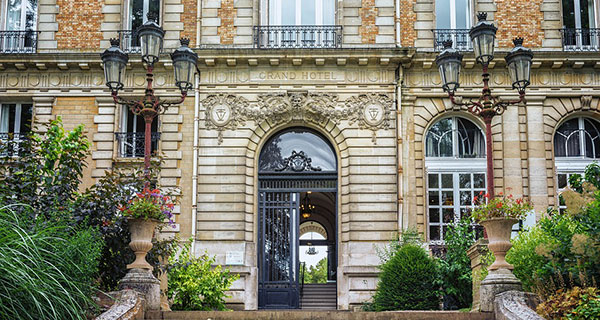 While hotels are called just that around the world, especially in cities, if you’re looking for a place to sleep in more rural areas of a country, it pays to know some of the other names you should be looking for.
While hotels are called just that around the world, especially in cities, if you’re looking for a place to sleep in more rural areas of a country, it pays to know some of the other names you should be looking for.
If you are visiting English speaking countries:
In the U.S., if you’re looking for a place to sleep you might want to look for a “lodge” or an “inn” or a “motel” or a “motor inn”.
In the United Kingdom, you can look for any of those and add “pubs” to the mix. In both of these English speaking countries and others, the caveat is that inns, lodges, and pubs may only serve food and not have rooms at all.
In France and other French speaking countries:
Hotel is common terminology in France but, to complicate things, “Hotel de Ville” is the city hall in Paris and many other French cities. You won’t be spending the night there.
But there are a variety of terms you might also come across in France. Look for “l’hostellerie”, “auberge”, or “residence.” You might also look for big chains like Novotel or Mercure.
If you want to splurge and stay in high end digs, look for a castle or manor house that may be listed as “Relais and Chateaux,” the name of a high end chain of castles, and manor houses. You may see individual establishments called just a “Chateau.”
“Logis” are smaller lodging places. And if you see something advertised as a “Mas”, you might be looking at a farmhouse-style of accommodations. Just so you are aware, a Mas can be self-catering or have full luxurious amenities.
In Italy and nearby counties:
“Albergo” means hotel in Italian. Also look for “Locanda.” While “Pensione” may sound like they would be “B&Bs”; they are actually small albergos that are usually family run. For the high end, you can look for “Palazzos”. For an interesting rural experience, look for “agriturismos.”
In German speaking countries:
Look for a “gasthof” or “gasthaus.” They may or may not have an accompanying sign that reads “zimmers”.
If you’re looking for a spa resort, you might look for something with “Bad” (bath) in the name. A small local place might be called a “pension.”
While in Spain:
You really should find one of their “Paradors” and stay in one. These are historic buildings, monasteries and castles that have been restored and now function as great places for tourists to stay. Other terms you should look for are “Residencia” and “Pension.”
In Portugal:
As in Spain, look for stays in historic buildings. They are called “Pousadas” in Portugal. There are also small inexpensive local places to stay called “Pensoes”.
In some European countries you may see “hotel garni” or just “garni”. These have limited restaurant facilities (usually breakfast only) and other services, but are otherwise like other hotels and are rated by star systems in each country where you encounter them.
Bottom line: if it looks like a hotel why not stop and ask for a room? If you’re wrong, most people are willing to help lost tourists, and they might just find you a place with a name you’ve never heard of. Who cares if it’s called by some other name?
The views, opinions and positions expressed by columnists and contributors are the author’s alone. They do not inherently or expressly reflect the views, opinions and/or positions of our publication.
